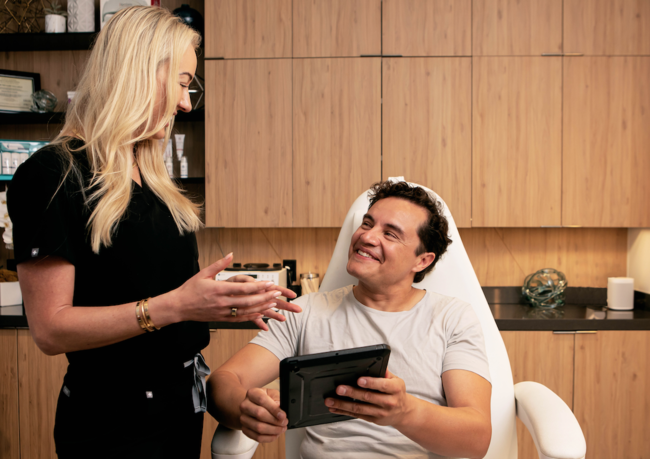In recent years, the wellness world has been buzzing with the benefits of infrared saunas. From detoxifying the body to easing joint pain and boosting circulation, the list of advantages seems endless. But now, new research is shining a light on a particularly exciting connection — the impact of infrared sauna therapy on mental health, especially in reducing symptoms of anxiety.
Could this heat-based therapy really calm the mind as well as the body?
What Is an Infrared Sauna?
Unlike traditional saunas that heat the air around you, infrared saunas use infrared lamps to warm your body directly. This allows for a gentler, more comfortable experience at lower temperatures (usually between 40°C and 60°C), while still delivering intense benefits. The infrared rays penetrate the skin more deeply, which can help improve circulation, promote relaxation, and trigger the body’s natural healing processes.
The Science Behind the Calm
Recent studies are beginning to uncover the potential link between infrared sauna use and improved mental health, particularly when it comes to reducing anxiety. Researchers from the University of Wisconsin and Stanford University have explored how “hyperthermic conditioning” — essentially raising the body’s core temperature — affects mood and mental well-being.
One clinical trial, for instance, found that participants who experienced a single session of whole-body heat therapy reported significantly lower levels of anxiety and depressive symptoms within just a week — and the effects lasted for up to six weeks. That’s a powerful result from just one sauna session.
The underlying mechanism appears to involve the body’s stress response system. When exposed to moderate heat, the body releases endorphins—those feel-good hormones often linked with exercise. At the same time, cortisol, the hormone associated with stress, is reduced. In effect, this creates a mini reboot for the nervous system.
A Natural Boost to Your Mental Well-Being
People who regularly use infrared saunas often report a greater sense of calm, improved sleep, and an overall uplift in mood. For individuals with anxiety — particularly generalised anxiety disorder (GAD) or stress-related symptoms — the soothing effect of a warm infrared session can provide a natural, side-effect-free complement to traditional treatment methods such as therapy and medication.
It’s worth noting that sauna therapy doesn’t replace professional mental health care, but it may offer a supportive and accessible tool in a wider self-care plan. Like mindfulness or yoga, it encourages people to slow down, be present, and tend to their bodies and minds in tandem.
Other Mental Health Benefits
Beyond anxiety, there’s growing interest in how infrared sauna therapy may benefit those with depression, seasonal affective disorder (SAD), and even PTSD. While large-scale studies are still in the early stages, preliminary evidence suggests that the heat-induced relaxation response, improved blood flow, and boosted serotonin levels may regulate mood and emotional balance.
Some researchers believe repeated sauna sessions may even help ‘train’ the brain and body to handle stress better over time, much like regular meditation or exercise.
Making Infrared Saunas Part of Your Routine
If you’re curious about adding infrared sauna therapy into your mental wellness routine, the good news is that it’s becoming more accessible than ever. Many spas, gyms, and wellness centres now offer infrared sessions, and home infrared saunas are increasingly popular for those who prefer a private setting.
Experts generally recommend starting with two to three sessions per week, lasting 20 to 40 minutes. Hydration is key, as is listening to your body—if you feel dizzy or uncomfortable, always exit the sauna and cool down.
It’s also wise to speak with your doctor, especially if you’re on medication or managing a chronic condition, before beginning any new wellness therapy.








